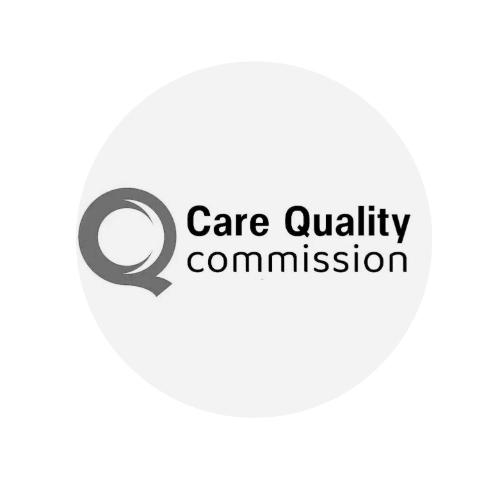Heart Health and Brain Health: How Heart Disease Links to Dementia

Did you know that heart disease affects 7.6 million people across the UK, making it one of our nation’s most pressing health challenges? What’s even more concerning is the growing evidence that reveals how heart disease links to dementia, creating a double burden for millions of families.
Are you worried that cardiovascular problems might be silently affecting your loved one’s cognitive health? You’re not alone in this concern. Understanding the heart disease and dementia connection represents one of the most important steps we can take to protect our brain health as we age.
The British Heart Foundation continues to champion vital research in this field, helping us recognise that caring for our hearts means caring for our minds. At LuxuryCare, we witness daily how this knowledge transforms the way families approach comprehensive health planning for their loved ones.
The British Heart Foundation's Role in Heart and Brain Health
For over 60 years, the British Heart Foundation has stood at the forefront of cardiovascular research and public health education, fundamentally changing how we understand heart disease prevention and treatment. Their mission extends far beyond traditional heart care, as groundbreaking research reveals the intricate connections between cardiovascular health and cognitive function.
The Foundation’s landmark studies have demonstrated that people with heart disease face an increased risk of developing dementia compared to those with healthy hearts. Their ongoing research programmes continue to uncover how conditions like atrial fibrillation, heart failure, and coronary artery disease create pathways to cognitive decline.
Through public health campaigns such as “Protect Your Heart, Protect Your Mind”, the British Heart Foundation educates communities about lifestyle modifications that serve dual purposes.
Their resources help families understand that when we prevent heart disease through better nutrition, regular exercise, and stress management, we’re simultaneously building cognitive resilience. This integrated approach to health promotion has revolutionised how healthcare professionals and families think about preventing both cardiovascular disease and dementia together.


How Heart Disease Is Connected to Dementia
The relationship between heart health and brain function centres on one critical factor: optimal blood flow to the brain. Your brain demands approximately 20% of your heart’s total blood output, making it entirely dependent on consistent, oxygen-rich circulation to maintain cognitive function.
When cardiovascular disease disrupts this delicate balance, several mechanisms increase dementia risk. Reduced blood supply from conditions like heart failure or coronary artery disease creates chronic oxygen deprivation in brain tissue, leading to a gradual cognitive decline.
Additionally, irregular heart rhythms such as atrial fibrillation significantly increase stroke risk, and even small, unnoticed strokes accumulate damage that manifests as vascular dementia.
The blood vessels themselves become compromised through atherosclerosis and hypertension, creating a cascade of vascular damage that affects memory centres and executive function areas.
Research shows that vascular dementia accounts for approximately 15% of all dementia cases, while mixed dementia (combining Alzheimer’s with vascular components) represents another significant portion. Understanding these connections empowers families to take proactive steps that protect both heart and brain simultaneously.
Recognise the Early Warning Signs
Early detection of both heart problems and cognitive changes can dramatically improve outcomes, making recognition of warning signs absolutely crucial for families.
Heart health warning signs:
- Chest pain or discomfort during activity
- Shortness of breath with minimal exertion
- Irregular heartbeat or palpitations
- Unexplained fatigue or weakness
- Swelling in legs, ankles, or feet
- Dizziness or fainting episodes
Early dementia warning signs:
- Memory loss affecting daily activities
- Difficulty planning or solving problems
- Confusion with time or place
- Changes in mood or personality
- Withdrawal from social activities
- Difficulty completing familiar tasks
The connection between memory loss and heart health becomes particularly evident when both systems show early warning signs simultaneously. If you notice cardiovascular symptoms alongside cognitive changes, this combination requires immediate medical attention, as addressing heart health promptly may help slow cognitive decline.


Protect Your Heart and Your Mind
Fortunately, the strategies that prevent heart disease also provide powerful protection against dementia risk factors, creating an efficient approach to comprehensive health maintenance.
Heart and brain protection strategies:
- Follow a Mediterranean-style diet rich in omega-3 fatty acids
- Engage in regular moderate exercise (150 minutes weekly)
- Maintain healthy blood pressure below 140/90
- Quit smoking and limit alcohol consumption
- Practice stress management through meditation or relaxation
- Ensure 7-8 hours of quality sleep nightly
Additional cognitive health tips:
- Challenge your mind with puzzles, reading, or learning new skills
- Maintain strong social connections and community involvement
- Stay mentally active through meaningful conversations
- Engage in creative activities like art, music, or writing
By adopting these strategies, individuals can reduce their dementia risk. The beauty lies in how each positive change creates benefits for both cardiovascular and cognitive health, making your efforts doubly effective.
How LuxuryCare Supports Heart and Brain Health
At LuxuryCare, we’ve designed our care approach around the fundamental understanding that brain health and heart health are inseparably connected. Our holistic philosophy recognises that protecting cognitive function requires comprehensive cardiovascular support alongside traditional dementia care strategies.
Our nutrition programmes emphasise heart-healthy, brain-boosting foods rich in antioxidants and omega-3 fatty acids. Residents enjoy Mediterranean-inspired menus that support both circulation and cognitive function. Our activity coordinators design gentle exercise programmes that promote cardiovascular fitness while providing cognitive stimulation through music, dancing, and social interaction.
Our trained care staff monitor both cardiovascular and cognitive indicators, recognising how changes in heart rhythm, blood pressure, or circulation might affect cognitive performance. We work closely with families and healthcare providers to ensure medication management considers both heart health and brain function optimisation.
For families concerned about vascular dementia or the heart-dementia connection, we provide specialised care plans that address both conditions simultaneously. Our approach includes regular health monitoring, cognitive engagement activities, and lifestyle modifications that support overall wellbeing.
Get in Touch
If you’re concerned about how heart disease links to dementia in your family, LuxuryCare offers the expertise and compassionate care you need. Our fully trained staff understand the heart disease and dementia connection, providing personalised care plans that address both cardiovascular and cognitive health needs.
With over 20 years of experience and six modern care homes across Bournemouth and Poole, we’re uniquely positioned to support your loved one’s journey. Call us today on 01202 037373 or complete our contact form to discover how our integrated approach to heart and brain health can make a meaningful difference for your family.















